Bigshek73 - Untitled

More Posts from Bigshek73 and Others

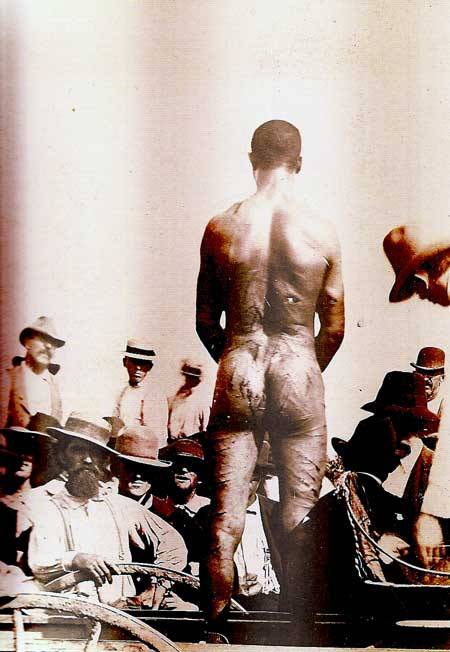
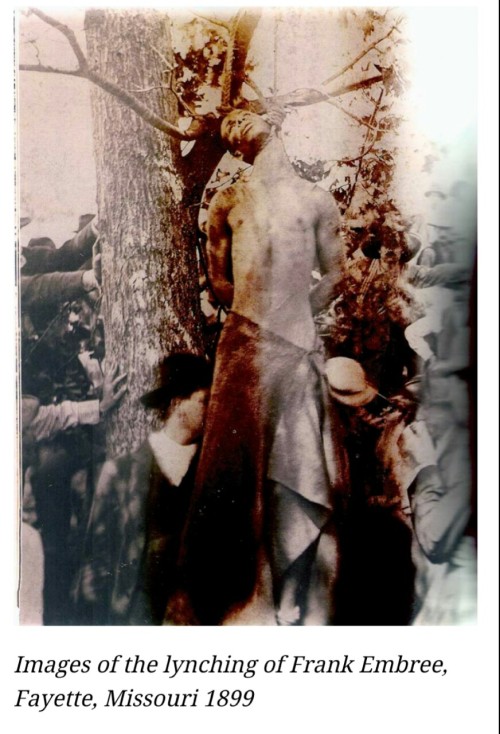
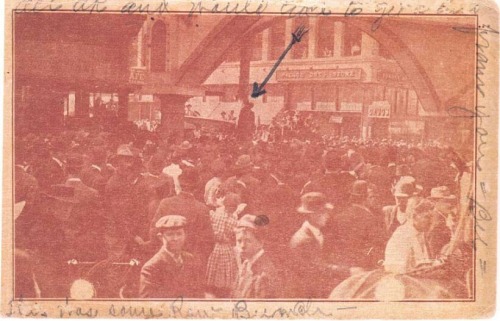


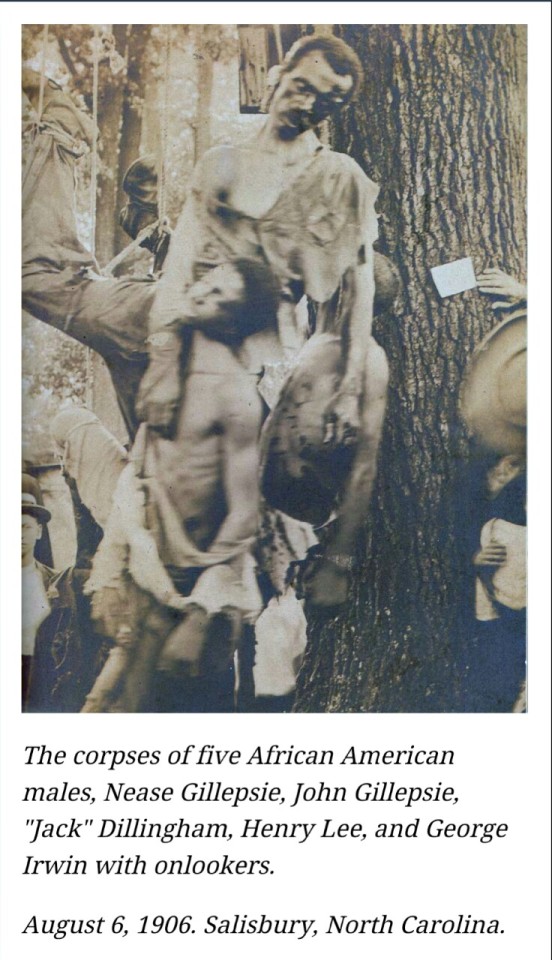

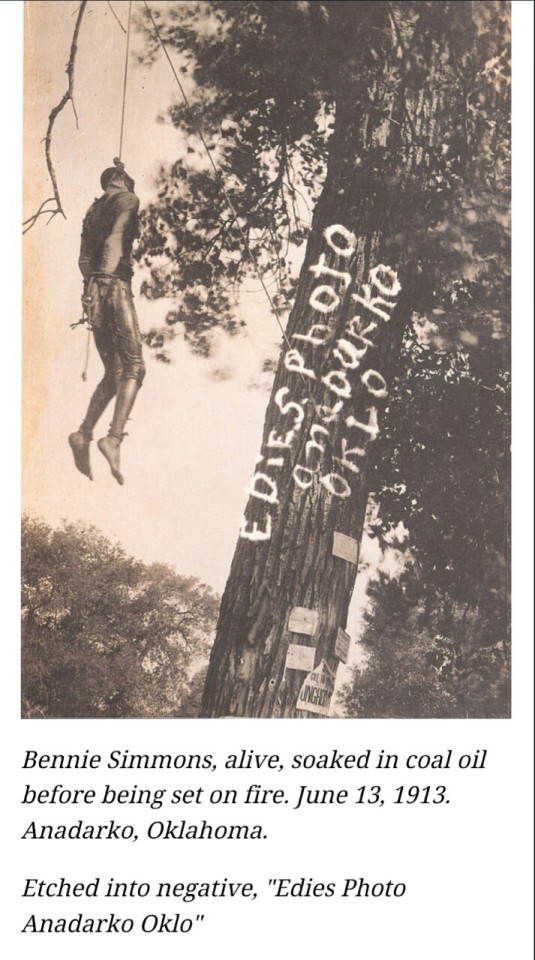

American Terrorism… Lynching Postcards
Terrorism is defined as “the use of violence and intimidation in the pursuit of political aims.” Western media likes to paint terrorists with a brown face, but one of the most horrific campaigns of terror happened in the past century on American soil – the estimated 3,436 lynchings of black American men and women between 1882 and 1950, intended to control and intimidate the recently freed black population. There is nothing more disturbing than being confronted with visual evidence of humanity’s dark heart, especially when it is evidence of a widespread, mainstream hatred for and violence towards one another. Hatred that stems from fear, and is driven by religion and a belief that murder is morality made distorted flesh; violence that aims to cow and suppress any aspirations a community might have for equality and a brighter future.
When I came across this collection of American postcards from James Allen and John Littlefield, published in a book entitled Without Sanctuary, I saw how important it is to look at these images, today more than ever. These postcards were made to commemorate events that made many American white people feel proud – of their race, of their superiority, of their civilization and their intelligence. They took photos of their disgusting, cowardly accomplishments and memorialized them for future generations, to be found and collected and remembered by their descendents. On the backs, they wrote to friends and family in sociopathic excitement about the mob the participated in. These postcards capture the mobs witnessing with glee the murder of young men and women, whose most serious crime was the color of their skin. The corpses hanging and charred in these postcards lived in a world that counted down the days until their murder from the second they drew air into their infant lungs. This history is potent, stomach-churning and of essential importance to the America of today, and to the world of today. And the most striking thing about these photographs is that they don’t erase the perpetrators like many histories and memorials do today, preferring to focus on who was victimized rather than on those who proudly – and with government backing – tortured, raped and murdered people. The murderers in these photos stand proud, grown men looking at the camera with the smiling conviction that the teenage boy they just killed, one against a hundred, was deserving of their hatred, fear and frustration. No grand jury needed; the law was in the hands of the murderers.
History is not linear; history is happening all around us, all the time. These photos are context, they are reality, they are pictures of American terrorism. Read James Allen’s commentary below and be aware that these photos are sickening, and all too real.
Africans in America mounted resistance to white people lynchings in numerous ways. Intellectuals and journalists encouraged public education, actively protesting and lobbying against lynch mob violence and government complicity in that violence. The National Association for the Advancement of Colored People (NAACP), as well as numerous other organizations, organized support from white and black Americans alike and conducted a national campaign to get a federal anti-lynching law passed. African American women’s clubs raised funds to support the work of public campaigns, including anti-lynching plays. Their petition drives, letter campaigns, meetings and demonstrations helped to highlight the issues and combat lynching.[4] In the Great Migration, extending in two waves from 1910 to 1970, 6.5 million African Americans left the South, primarily for destinations in northern and mid-western cities, both to gain better jobs and education and to escape the high rate of violence.
From 1882 to 1968, “…nearly 200 anti-lynching bills were introduced in Congress, and three passed the House. Seven presidents between 1890 and 1952 petitioned Congress to pass a federal law.”[5] In 1920 theRepublican Party promised at its national convention to support passage of such a law. In 1921 Leonidas C. Dyer from Saint Louissponsored an anti-lynching bill; it was passed in January 1922 in the United States House of Representatives, but a Senate filibuster by the Southern white Democratic block defeated it in December 1922. With the NAACP, Representative Dyer spoke across the country in support of his bill in 1923 and tried to gain passage that year and the next, but was defeated by the Southern Democratic block.

https://twitter.com/LouisFarrakhan/status/709424687751626753?s=09
Check out @LouisFarrakhan's Tweet:
The Queen


Classic


“We are still thinking minority, when we were never a minority. But we are letting minority people fool us into thinking minority. And we are literally being controlled by minorities, who endear themselves to other minorities by demonstrating their ability to control us. And they control us by manipulating images through politics and religion in the mass media.”
- John Henrik Clarke -
Wow. Black Tumblr! Let’s make this go VIRAL! This is so important…
Facebook | Instagram | Twitter
Black Panther did to Civil War what Nicki Minaj did to Monster.
-
 bowpig52 liked this · 3 years ago
bowpig52 liked this · 3 years ago -
 sparklypizzafriendbear reblogged this · 3 years ago
sparklypizzafriendbear reblogged this · 3 years ago -
 sparklypizzafriendbear liked this · 3 years ago
sparklypizzafriendbear liked this · 3 years ago -
 king-me-us reblogged this · 3 years ago
king-me-us reblogged this · 3 years ago -
 modern-mayhem liked this · 3 years ago
modern-mayhem liked this · 3 years ago -
 itsfi reblogged this · 3 years ago
itsfi reblogged this · 3 years ago -
 itsfi liked this · 3 years ago
itsfi liked this · 3 years ago -
 jacksunshine1 liked this · 3 years ago
jacksunshine1 liked this · 3 years ago -
 crownedincurls reblogged this · 3 years ago
crownedincurls reblogged this · 3 years ago -
 bat-bigasstitties2 liked this · 3 years ago
bat-bigasstitties2 liked this · 3 years ago -
 djrasomegarrr liked this · 3 years ago
djrasomegarrr liked this · 3 years ago -
 smooveoff liked this · 3 years ago
smooveoff liked this · 3 years ago -
 silent21movements liked this · 3 years ago
silent21movements liked this · 3 years ago -
 sunbookie reblogged this · 3 years ago
sunbookie reblogged this · 3 years ago -
 sunbookie liked this · 3 years ago
sunbookie liked this · 3 years ago -
 a-vorku liked this · 3 years ago
a-vorku liked this · 3 years ago -
 itsveezy reblogged this · 3 years ago
itsveezy reblogged this · 3 years ago -
 itsveezy liked this · 3 years ago
itsveezy liked this · 3 years ago -
 kinkyhornyandmarried99 liked this · 3 years ago
kinkyhornyandmarried99 liked this · 3 years ago -
 sdog41 liked this · 3 years ago
sdog41 liked this · 3 years ago -
 sdog41 reblogged this · 3 years ago
sdog41 reblogged this · 3 years ago -
 836dejones liked this · 3 years ago
836dejones liked this · 3 years ago -
 iltffw23 liked this · 3 years ago
iltffw23 liked this · 3 years ago -
 lovesistas liked this · 3 years ago
lovesistas liked this · 3 years ago -
 snake41 liked this · 3 years ago
snake41 liked this · 3 years ago -
 guccidarknezz liked this · 3 years ago
guccidarknezz liked this · 3 years ago -
 1969creep liked this · 3 years ago
1969creep liked this · 3 years ago -
 mo4yoas liked this · 3 years ago
mo4yoas liked this · 3 years ago -
 bhushan-wagh liked this · 3 years ago
bhushan-wagh liked this · 3 years ago -
 44lmao liked this · 3 years ago
44lmao liked this · 3 years ago -
 datboislimm reblogged this · 3 years ago
datboislimm reblogged this · 3 years ago -
 datboislimm liked this · 3 years ago
datboislimm liked this · 3 years ago -
 cando1willdo2 liked this · 3 years ago
cando1willdo2 liked this · 3 years ago -
 gotthajuicee liked this · 3 years ago
gotthajuicee liked this · 3 years ago -
 bigshek73 reblogged this · 3 years ago
bigshek73 reblogged this · 3 years ago -
 bigshek73 liked this · 3 years ago
bigshek73 liked this · 3 years ago -
 colorandquotes liked this · 3 years ago
colorandquotes liked this · 3 years ago -
 horusrah5454 reblogged this · 3 years ago
horusrah5454 reblogged this · 3 years ago